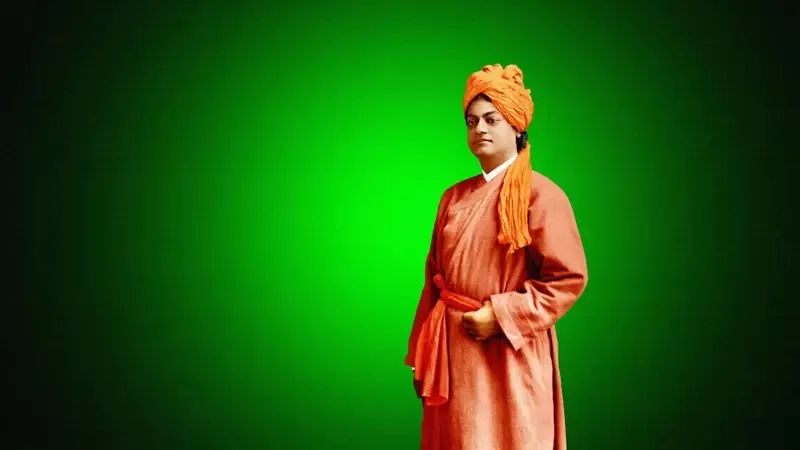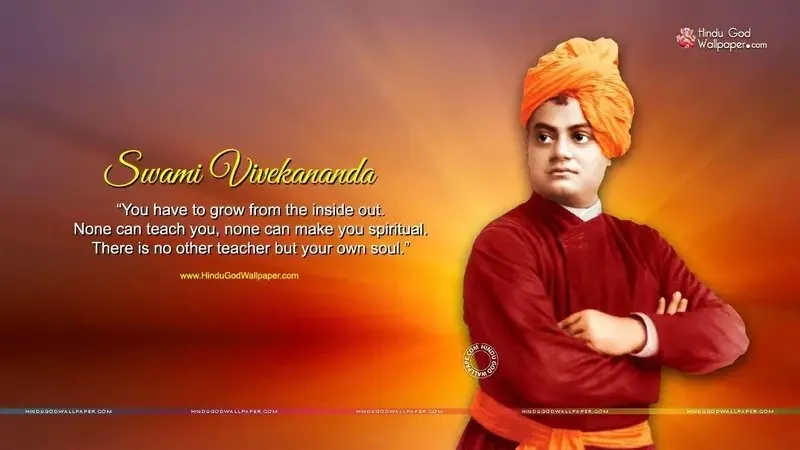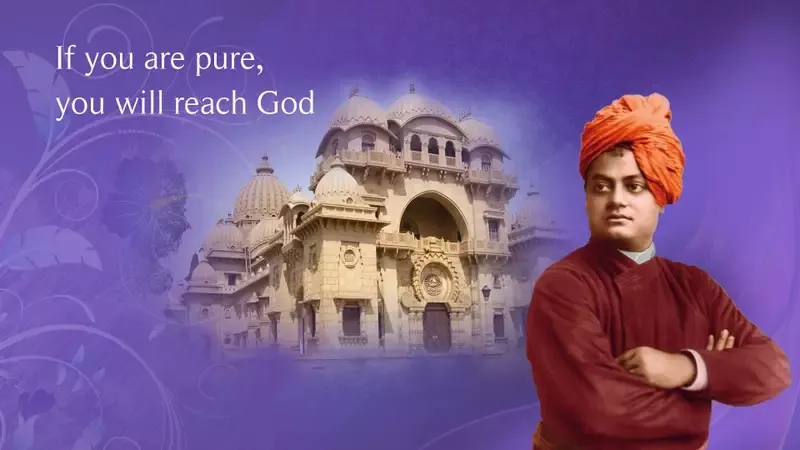Swami Vivekananda:
Where was Vivekananda born?
Swami Vivekananda was born Narendranath Datta on 12th January, 1863, to an aristrocratic Bengali family of Calcutta. His father, Vishwanath Datta was an attorney at the Calcutta High Court, and his mother, Bhubaneshwari Devi was a devout housewife. The progressive and rational thinking of his parents mixed with a deep rooted spirituality shaped young Narendranath’s mind.

As a young boy, Swami Vivekananda excelled in music, gymnastics and studies. He went on in life to become one of the greatest Indians to introduce the philosophies of Yoga and Vedanta to the Western world. He is also credited with raising interfaith awareness, bringing Hinduism to the status of a major world religion during the 19th Century.
Early Years:
Swami Vivekananda was one of nine siblings. He was spiritually inclined at an early age, fascinated by wandering ascetics and monks.
His education was both a mix of Western and Indian worlds. He studied Western philosophies, religion, history, social science, art and literature along with the Puranas, the Ramayana, the Mahabharata, the Bhagavad Gita, the Upanishads and the Vedas. Around this time, he was also briefly introduced to the Brahmo Samaj.
In 1881, he passed the Fine Arts examination and completed his Bachelor of Arts degree in 1884, from General Assembly’s Institution, where the principal described him to be a genius, with an amazing sense and understanding of philosophies.

Over the course of several years, Swami Vivekananda studied various schools of esoteric philosophies. He first met Ramakrishna Paramahamsa, who was to later become his Guru, in 1881. His meeting with Ramakrishna again in 1884, after his father’s death, was a life changing event.
He turned toward a monastic life and after Ramakrishna’s death from throat cancer, Swami Vivekananda and the other disciples were left without shelter. He decided to convert a dilapidated house to establish the first Ramakrishna Math at Baranagar and start the monastic order of Ramakrishna.
Monastic Vows and Life After:
Swami Vivekanada took his formal monastic vows along with the other disciples, in 1886. He assumed the name Swami Vivekananda much later.
In 1888, Swami Vivekanada left the monastery after receiving the blessings of Sarada Devi, Ramakrishna’s wife and embarked on a journey around India.
The Ramakrishna Mission:
The more he travelled, he understood, how poor and backward the masses were. And how important it was to uplift the poor, educate both men and women, and this sowed the seed for the Ramakrishna Mission.
After he had travelled for five years around India, he travelled to the United States of America, after spending a few months in Japan, China and Canada. He attended the Parliament of World’s Religions on 11th September, 1893, at Chicago, where he spoke on Vedanta, Advaita and Hinduism and its philosophies.
He spent three years, lecturing, touring, travelling around the various cities of United States of America.
Back to India – 1897 – 1899 and Death:
Swami Vivekananda established the Ramakrishna Mission on 1st May, 1897, in Calcutta. Its ideals were based on Karma Yoga. He further established two other ashrams, one in Mayavati, near Almora and one in Madras (Chennai), and founded two journals.
After another tour of the United States and France, Swami Vivekananda settled down at the Belur Math. On July 4th, 1902, he left his earthly body and attained samadhi.
Swami Vivekananda – Legacy:
He inspired the freedom fighters of India like Bal Gangadhar Tilak, Netaji Subhas Chandra Bose, Gandhiji. Nobel Laureate Rabindranath Tagore is also deeply influenced by his writings and teachings. His influence to this day extends into Hinduism, the way we look at Neo -Vedanta and Advaita philosophies.

Swami Vivekananda – Teachings:
- New Understanding of Religion and the explanation that reality is common to all humanity and that science and religion are not contradictory but complementary.
2.New View of Man
3.New Principle of Morality and Ethics
4.Bridge between East and West
His birthday is celebrated as National Youth Day.
Swami Vivekananda – Quotes:
1.All that man has to do is to take care of three things; good thought, good word, good deed.
2.Self-sacrifice, indeed, is the basis of all civilisations.
3.Please everyone without becoming a hypocrite or a coward.
4.The real individuality is that which never changes and will never change; and that is the God within us.
5.Strength is the property of everyone in spite of all apparent weakness.
6.Through education comes faith in one’s own Self.